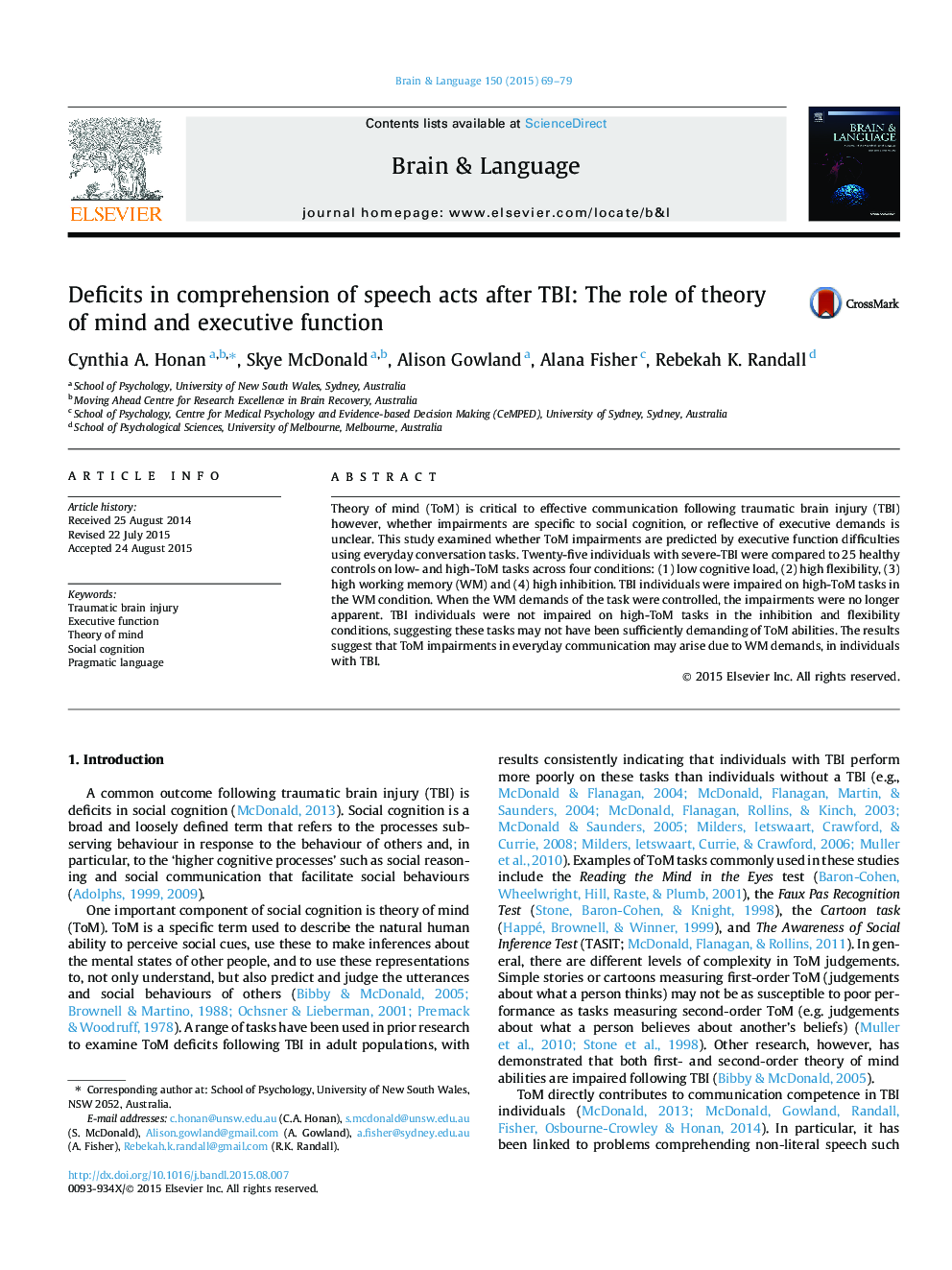| Article ID | Journal | Published Year | Pages | File Type |
|---|---|---|---|---|
| 7284012 | Brain and Language | 2015 | 11 Pages |
Abstract
Theory of mind (ToM) is critical to effective communication following traumatic brain injury (TBI) however, whether impairments are specific to social cognition, or reflective of executive demands is unclear. This study examined whether ToM impairments are predicted by executive function difficulties using everyday conversation tasks. Twenty-five individuals with severe-TBI were compared to 25 healthy controls on low- and high-ToM tasks across four conditions: (1) low cognitive load, (2) high flexibility, (3) high working memory (WM) and (4) high inhibition. TBI individuals were impaired on high-ToM tasks in the WM condition. When the WM demands of the task were controlled, the impairments were no longer apparent. TBI individuals were not impaired on high-ToM tasks in the inhibition and flexibility conditions, suggesting these tasks may not have been sufficiently demanding of ToM abilities. The results suggest that ToM impairments in everyday communication may arise due to WM demands, in individuals with TBI.
Related Topics
Life Sciences
Neuroscience
Biological Psychiatry
Authors
Cynthia A. Honan, Skye McDonald, Alison Gowland, Alana Fisher, Rebekah K. Randall,
